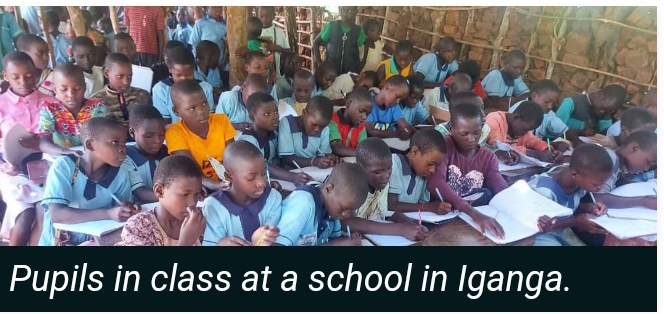Education reforms strive for quality, access

In a bid to improve access to quality education for all Ugandan children, recent education reforms have been implemented, targeting key areas such as school infrastructure, teacher training, and curriculum development.
These reforms, spearheaded by the Ugandan government in collaboration with various stakeholders, seek to address longstanding challenges in the education sector and pave the way for a brighter future for the country's youth.
One of the focal points of Uganda's education reforms has been the improvement of school infrastructure across the country.
Recognizing the importance of conducive learning environments, the government has invested in the construction and renovation of classrooms, laboratories, libraries, and other facilities.
Schools in rural and underserved areas have particularly benefited from these infrastructure upgrades, with new buildings providing students with safer and more comfortable spaces to learn.
Another critical aspect of the education reforms in Uganda has been the enhancement of teacher training programs.
Efforts have been made to improve the quality of teaching through comprehensive training sessions, workshops, and professional development opportunities for educators.
Emphasis has been placed on equipping teachers with the necessary skills and knowledge to effectively engage students, promote critical thinking, and adapt to evolving educational practices.
In response to changing societal needs and global trends, Uganda has embarked on a process of curriculum development aimed at ensuring relevance and alignment with the demands of the 21st century.
The new curriculum emphasizes holistic education, incorporating elements such as digital literacy, entrepreneurship, and vocational skills alongside traditional academic subjects.
This shift towards a more learner-centered and skills-based approach is intended to better prepare students for future challenges and opportunities.
The implementation of these education reforms has already begun to yield positive results in terms of improving access to quality education in Uganda.
Students now have greater access to well-equipped schools staffed by trained and motivated teachers.
The revitalization of school infrastructure has led to increased enrollment rates, especially among marginalized communities.
Moreover, the revamped curriculum has been well received by students and educators alike, fostering a more engaging and relevant learning experience.
While progress has been made, challenges remain in fully realizing the objectives of Uganda's education reforms.
Persistent issues such as inadequate funding, unequal distribution of resources, and lingering disparities in access to education pose ongoing challenges to the sector.
Moving forward, sustained investment, enhanced coordination among stakeholders, and a commitment to inclusive and equitable education will be essential to building on the gains achieved thus far and ensuring that all Ugandan children have access to quality education.
As Uganda continues on its path of educational transformation, the commitment to improving school infrastructure, enhancing teacher quality, and refining curriculum content stands as a testament to the country's dedication to empowering its youth and fostering a brighter future for generations to come



0 Comments